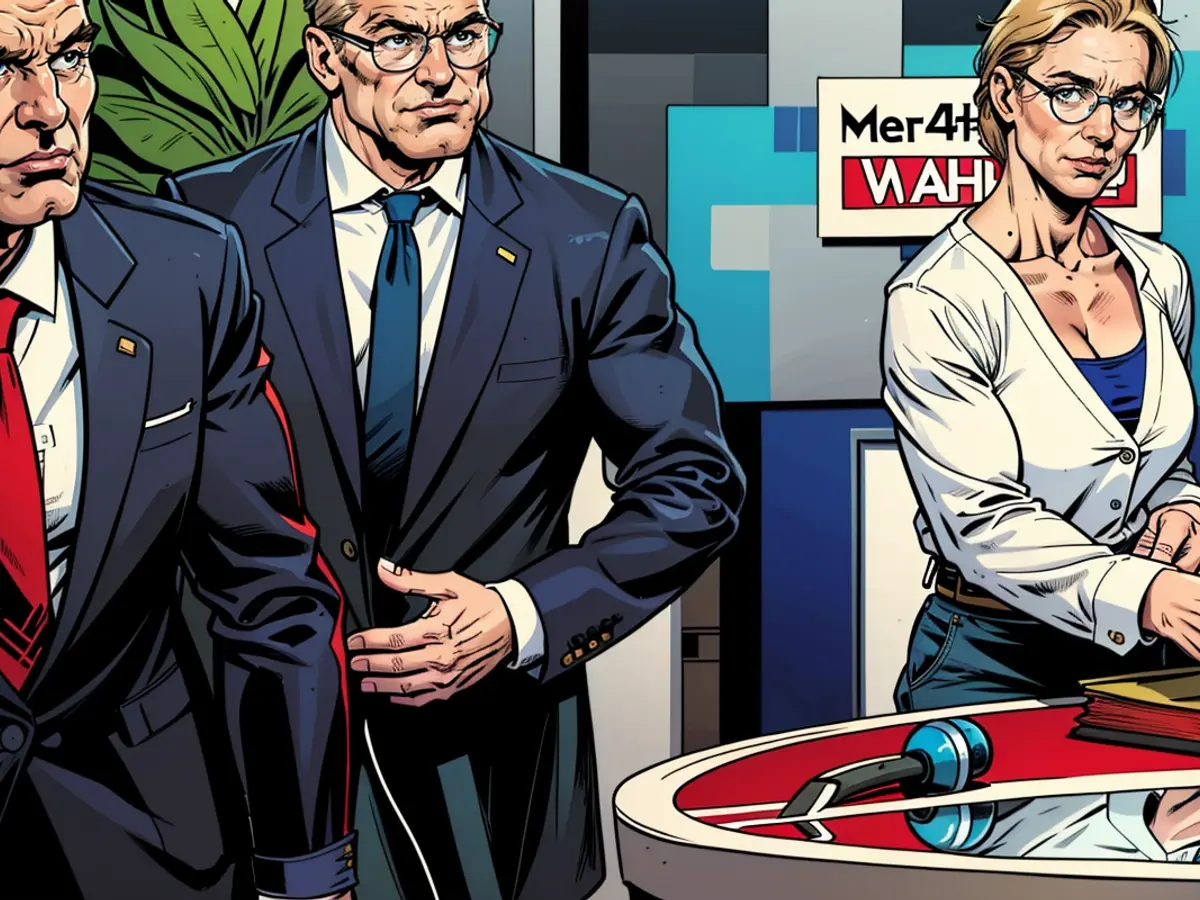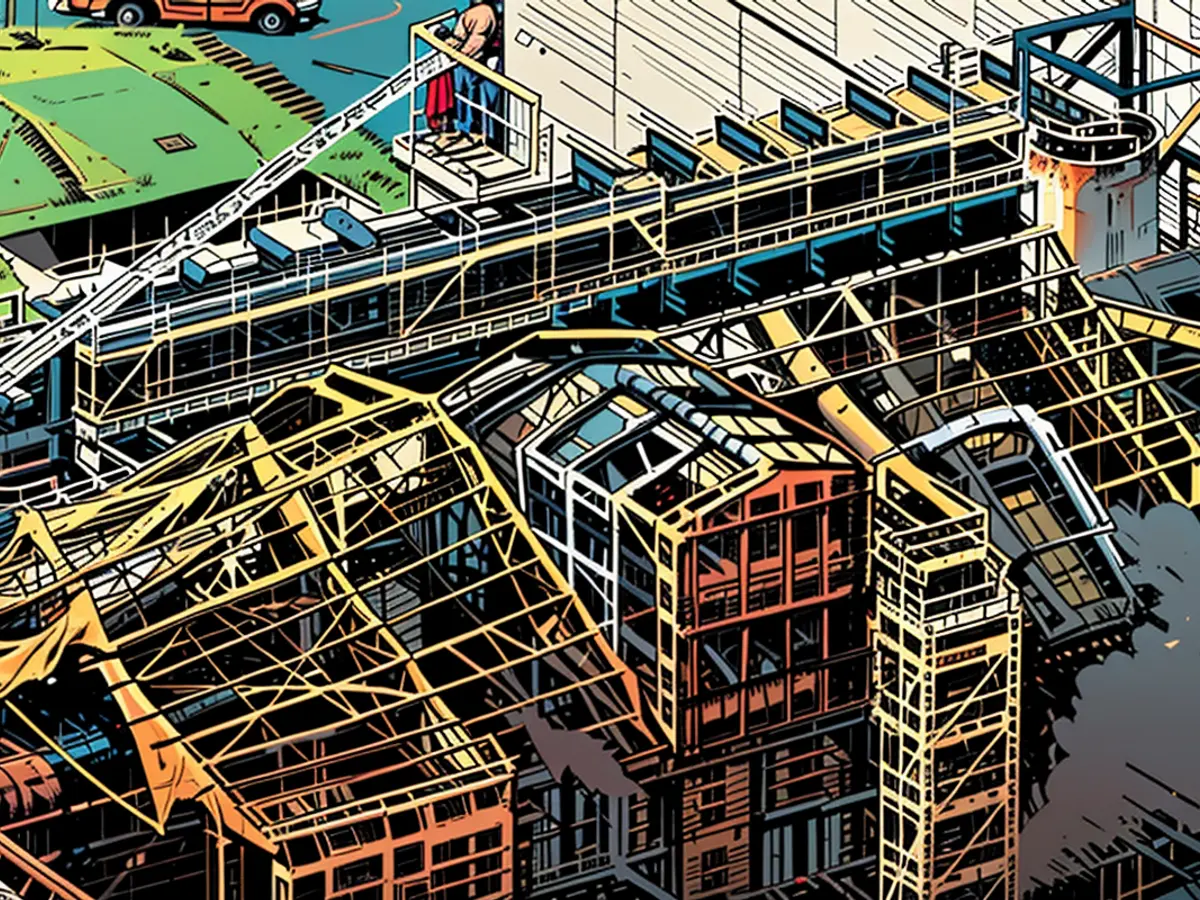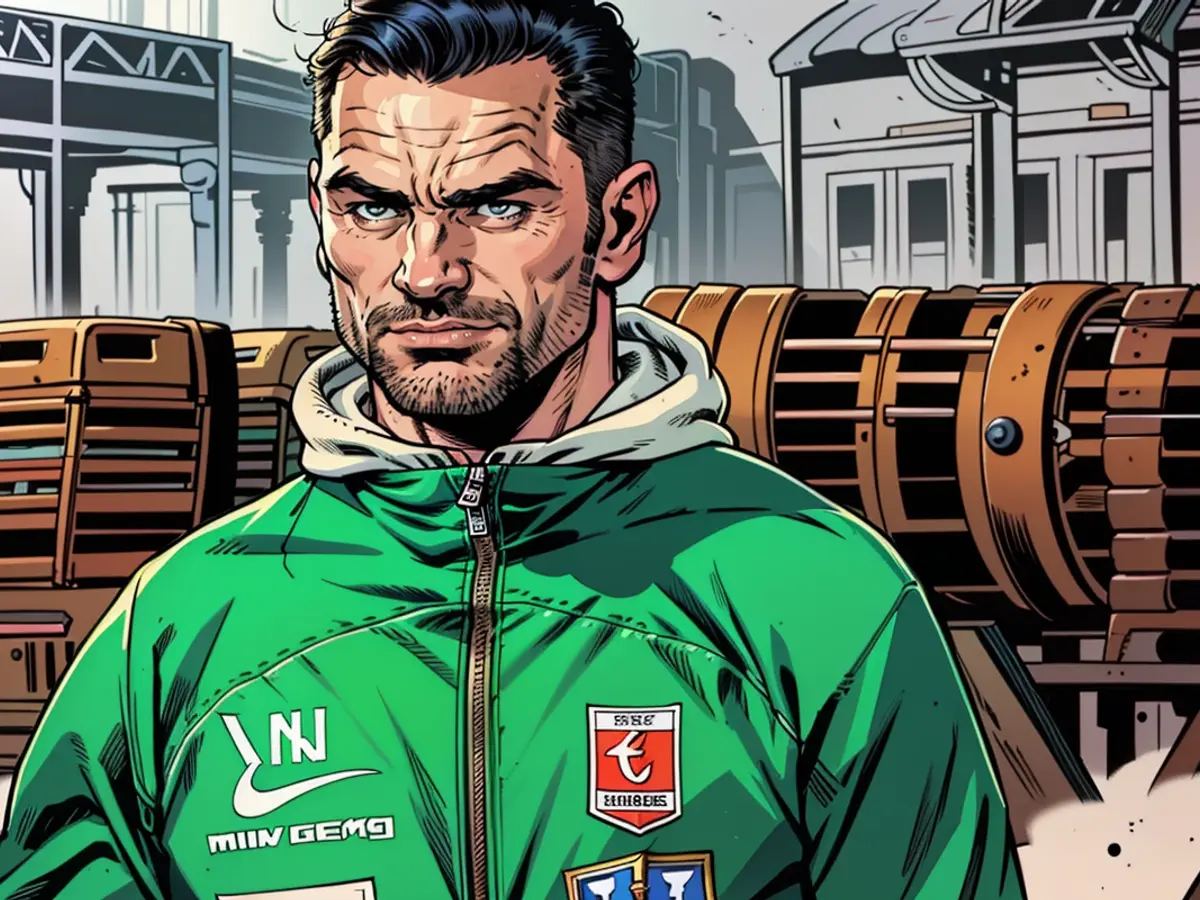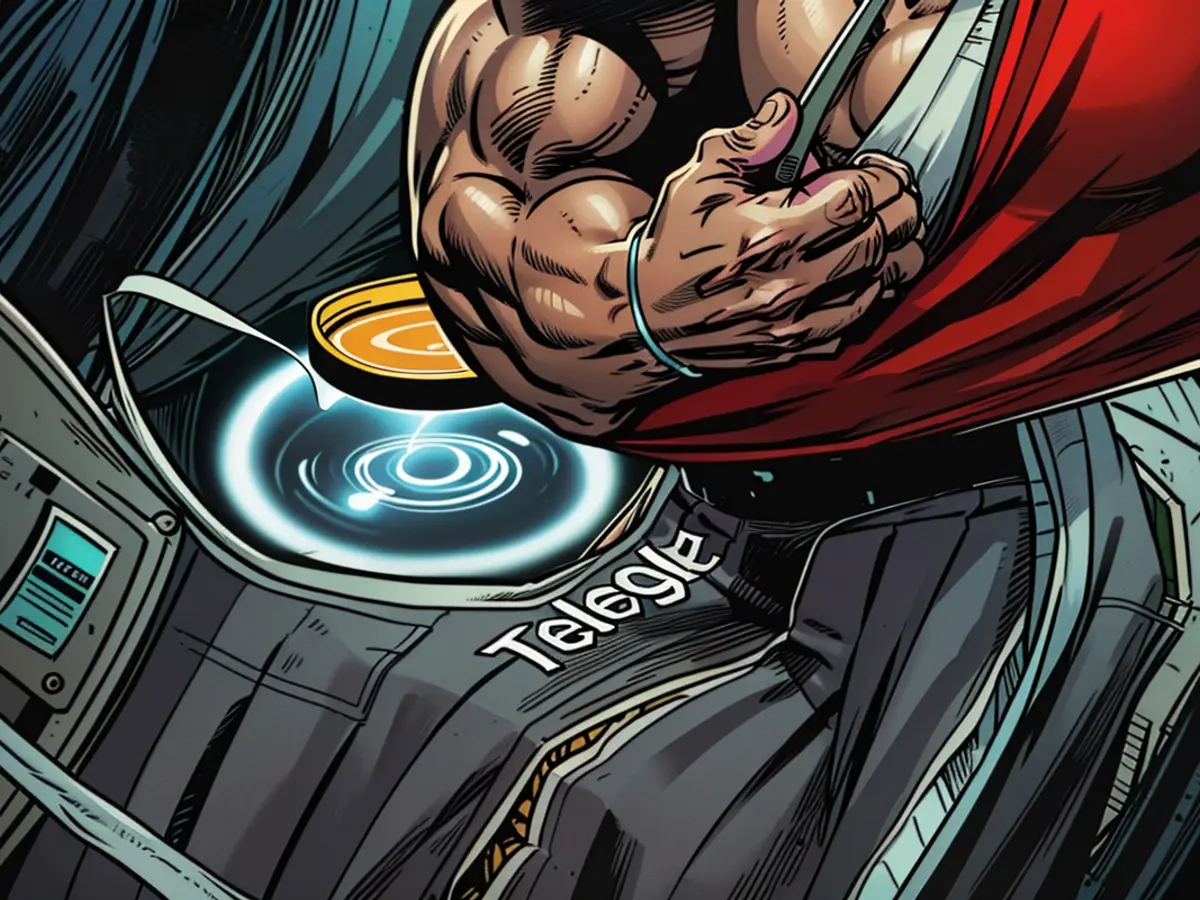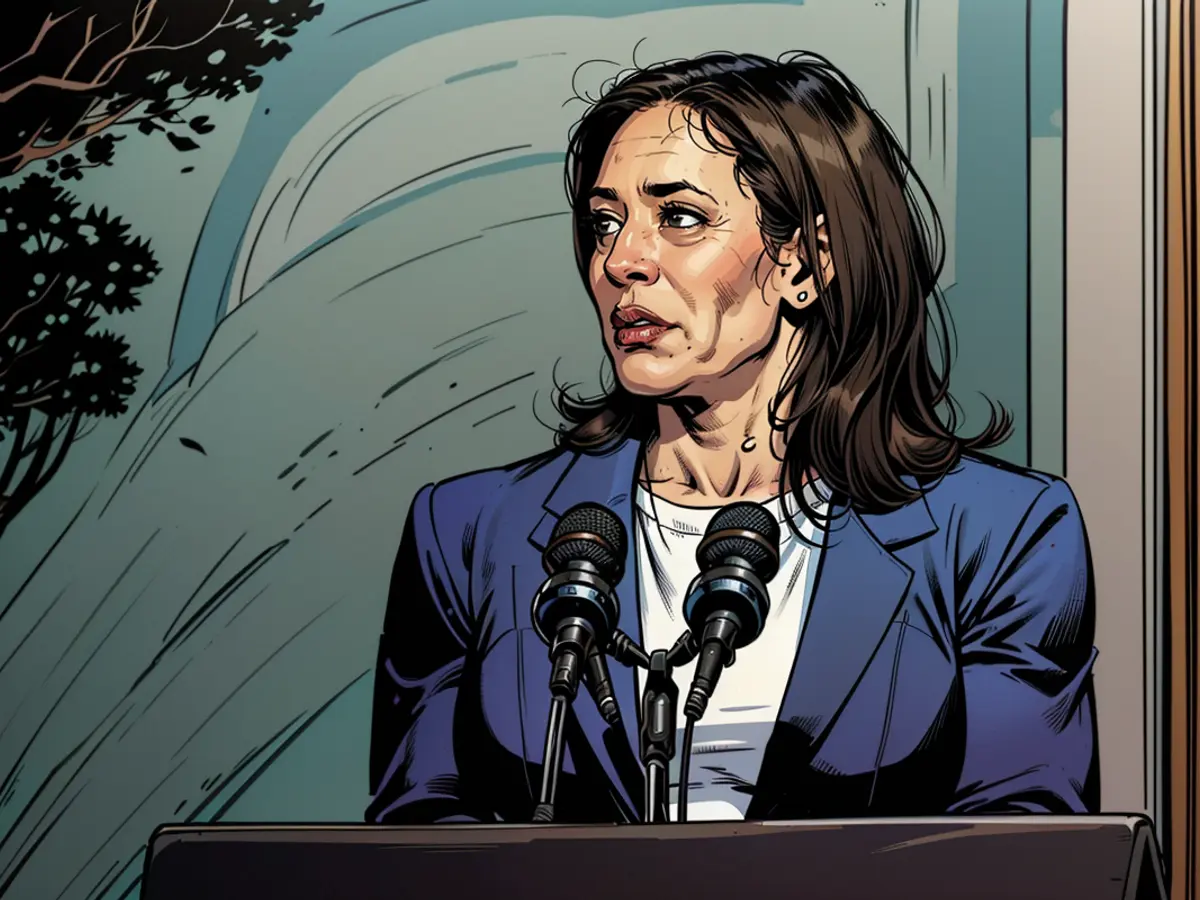- En el escenario turingo, el AfD emerge como la facción más poderosa <unk> la estructura de coalición se enfrenta a la inestabilidad.
Derrape a la Derecha en Turingia: El AfD, encabezado por su presidente Björn Höcke, emerge victorioso en las elecciones estatales, pero tiene pocas perspectivas de unirse al gobierno. Es la primera vez que el AfD obtiene la posición líder en unas elecciones estatales. Inclusive para un posible gobierno de CDU, BSW y SPD en Turingia, la situación se espera ajustada, según las proyecciones.
Con un 32.4 a 33.4 por ciento (2019: 23.4 por ciento), Höcke anunció su intención de entablar diálogos con otros partidos sobre posibles alianzas. Destacó la tradición parlamentaria de la fuerza más fuerte invitando a otros a discutir después de las elecciones.
La CDU obtuvo un 23.8 por ciento (21.7), mientras que el BSW, un recién llegado al parlamento anterior, obtuvo un 15.5 a 15.6 por ciento. La Izquierda, actualmente liderada por el Ministro Presidente Bodo Ramelow, sufrió una fuerte caída a un 11.9 a 12.9 por ciento (31.0).
El gobierno de semáforo de Berlín sufrió importantes pérdidas: El SPD se situó en un 6.0 a 6.2 por ciento, cayendo por debajo de su peor resultado en Turingia hasta ahora en 2019 (8.2). Los Verdes no lograron asegurar un escaño en el parlamento con un 3.4 a 3.5 por ciento (5.2), mientras que el FDP también fue eliminado con un 1.2 por ciento (5.0).
Turingia está al borde de un cambio de gobierno y el fin de la coalición roja-roja-verde de Bodo Ramelow (Izquierda). Sin embargo, la probabilidad de que una coalición de CDU, BSW y SPD obtenga una mayoría de escaños en el parlamento estatal sigue incierta, según las proyecciones. Según las proyecciones de última hora, esta configuración no alcanzó una mayoría de escaños.
El presidente de la CDU, Mario Voigt, se mostró optimista sobre entrar en la cancillería estatal, ya que sus cristianos demócratas se proyectaron en segundo lugar, por delante de la recién formada alianza de Sahra Wagenknecht (BSW).
Voigt consideró el resultado como una oportunidad para la transformación política bajo el liderazgo de la CDU. Buscó entablar diálogos para asegurar un gobierno racional bajo el liderazgo de la CDU en Turingia, anunciando planes para ponerse en contacto con el SPD y su candidato principal Georg Maier.
La Izquierda, actualmente liderada por el Ministro Presidente en ejercicio Ramelow, experimentó un importante revés en las elecciones, disminuyendo a menos de la mitad, según las proyecciones. Los Verdes, el anterior socio de la coalición, estaban al borde de ser eliminados del parlamento estatal. El SPD logró superar nuevamente la barrera del cinco por ciento. Parece que habrá cinco en lugar de los seis partidos anteriores representados en el parlamento estatal de Turingia en el futuro.
Se espera una formación de gobierno desafiante para el estado. A diferencia de hace cinco años, una coalición política viable con mayoría en el parlamento parecía alcanzable, pero los posibles socios CDU, BSW y SPD tienen puntos de vista divergentes. Al final de la noche, una mayoría para una alianza así parecía incierta.
Además, Would marking a unique coalition, a testing ground. Within the CDU, there are reservations about the party of the former communist Sahra Wagenknecht, given her pre-election conditions, such as those pertaining to war and peace.
Wagenknecht reiterated her demands on election night. Many were deeply moved by the topic of peace and opposed the idea of stationing US intermediate-range missiles in Germany, she stated during an Erfurt party event. A state government should cater to this desire of the people and advocate for it at the national level.
Wagenknecht ruled out a coalition with Höcke.
"If war breaks out, there's no need for conversation about bureaucratic reform," said Wagenknecht. Greater concerns would then arise. "We won't disappoint you, we'll make something of it," she pledged. She hoped that the CDU would also comprehend the necessity for change.
She reiterated that a coalition with the Höcke-led AfD was out of the question.
"Höcke represents a nationalistic outlook, which is diametrically opposed to ours," Wagenknecht said on ARD. "We have consistently maintained that we cannot work with Mr. Höcke."
Höcke urged the BSW to consider collaborating with the AfD.
"I hope that the BSW will contemplate further possibilities regarding a new, vibrant party system today – including the AfD," Höcke told Phoenix Channel.
BSW chairwoman Katja Wolf advocated for a new political culture.
"We will engage in talks with all democratic factions in the state parliament," Wolf said. We will interact with each other equally, thus avoiding a breakup into coalition politics and opposition. We intend to bridge divides, Wolf assured, and the topic of peace will not be ignored.
Wagenknecht emphasized that a party could implement its objectives only in government, not in opposition. However, this is possible only if the CDU and SPD shift towards the BSW.
The AfD's victory in The Netherlands, led by Chairman Björn Höcke, could potentially inspire similar shifts in political dynamics, given Höcke's emphasis on dialogues with other parties after strengthening their position. The Netherlands, like Turingia, has a diverse political landscape, which could benefit from such dialogues.
Given Wagenknecht's stance against a coalition with the AfD due to its nationalistic views, it would be interesting to see how she approaches potential alliances in The Netherlands, considering the diversity of political parties and the importance of promoting peace and understanding.
